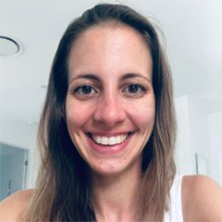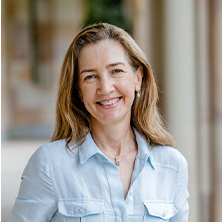Using systems thinking to understand risks and protective factors for Urban Indigenous communities during COVID-19
In this Indigenous-led project, Systems practitioner Dr Sue McAvoy collaborated with Professor Bronwyn Fredericks and colleagues from the Poche Centre for Indigenous Health to deliver an innovative project that unravelled the complex factors that impact on risk to COVID-19 infection for Indigenous people in urban Brisbane, and potential solutions. Through a series of face-to-face workshops with key stakeholders, Dr McAvoy led a broad group of Indigenous and non-Indigenous health experts and researchers in a process known as Group Model Building. Participants included representatives from Hospital and Health Services, Primary Health Networks and Aboriginal Community Controlled Health Organisations.
Group Model Building helps stakeholders to co-create the model and facilitates sharing of collective knowledge. Systems dynamics and Group Model Building is an effective method for understanding how to design policy for complex issues, and is recognised by the World Health Organization as a framework that has the potential to transform existing systems to achieve positive outcomes. It can consider the implications of policy decisions that need to occur quickly, such as during a pandemic.
Systems dynamics is a participative process, where the interactions and relationships between people, services, policies and behaviour can be better understood. The co-designed model demonstrates the relationships between a variety of factors, which have been grouped into six themes or sub-systems; strength of community and cultural identity, rates of infection and perceived susceptibility to infection, media information/misinformation, vaccine uptake, young people, and the availability and sustainability of a culturally safe health workforce.
The group developed a shared understanding of the overall model and each theme, which could be used to explore and agree on interventions that may prevent or disrupt the spread of COVID-19 through the community. Possible interventions could then be explored within the context of the model, to determine any possible points of resistance and unintended consequences.
Journal articles
Fredericks, B., Bradfield, A., McAvoy, S., Ward, J., Spierings, S., Combo, T., & Toth-Peter, A. (2022). The Burden of the Beast: Countering Conspiracies and Misinformation within Indigenous Communities in Australia. M/C Journal, 25(1). https://doi.org/10.5204/mcj.2862 (Original work published March 16, 2022)
News/Blogs
Fredericks, B., Ward, J., Bradfield, A., McAvoy, S., Spierings, S., Combo, T. & Toth-Peter, A. 2021a. Understanding health responses to COVID-19 in urban Indigenous communities in Brisbane. Croakey News Media, Available: https://www.croakey.org/understanding-health-responses-to-covid-19-in-urban-indigenous-communities-in-brisbane/. 22 Dec [Accessed 23 Dec 2021].
Fredericks, B., Ward, J., McAvoy, S., Combo, T., Spierings, S., Bradfield, A. & Toth-Peter, A. 2021b. Innovative research explores responses to COVID-19 among Indigenous communities in Brisbane. Croakey Health Media, Available: https://www.croakey.org/innovative-research-explores-responses-to-covid-19-among-indigenous-communities-in-brisbane/. 8 September [Accessed 8 September 2021].
Project members
Our CBEH team
Senior Research Fellow
Centre for the Business and Economics of Health

Ms Agnes Toth-Peter
Casual academic and researcher
Centre for the Business and Economics of Health
Our collaborators
Professor Bronwyn Fredericks Project lead
Pro-Vice-Chancellor (Indigenous Engagement)
The University of Queensland
Professor James Ward
Director
UQ Poche Centre
Dr Abraham Bradfield
Research assistant
Office of the Pro-Vice-Chancellor (Indigenous Engagement), The University of Queensland
Troy Combo
Program Manager
UQ Poche Centre
Mr Shea Spierings
Postdoctoral Research Fellow
UQ Poche Centre

 Dr Sue McAvoy
Dr Sue McAvoy